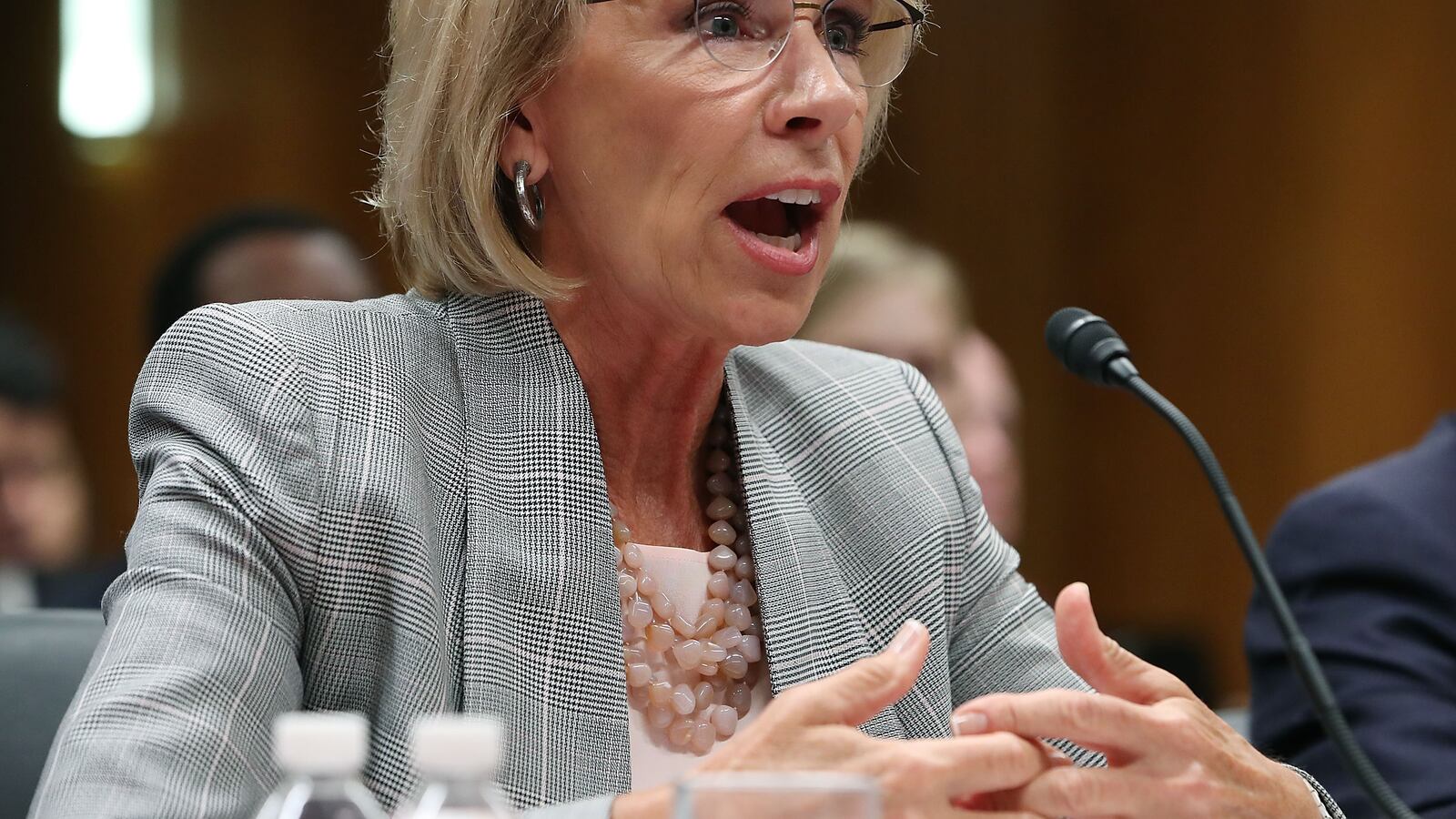Pressed to clarify her stance on whether school staff could report undocumented students to immigration authorities, Education Secretary Betsy DeVos avoided giving a clear answer before eventually saying, “I don’t think they can.”
It was an odd exchange before the U.S. Senate Appropriations Subcommittee, during a hearing that was meant to focus on budget issues but offered a prime opportunity for Senate Democrats to grill DeVos on other topics.
Chris Murphy, a Democratic senator from Connecticut, focused on DeVos’s comments a few weeks ago at House hearing where she said that it was “a school decision” whether to report undocumented students to Immigration and Customs Enforcement.
Civil rights groups responded sharply, calling it an inaccurate description of the department’s own rules and the Supreme Court case, Plyler v. Doe, that says schools must educate undocumented students.
In a statement after that hearing, DeVos seemed to walk back her comments, saying, “Schools are not, and should never become, immigration enforcement zones.” DeVos also referenced the Plyler case on Tuesday, while initially avoiding multiple chances to offer a yes or no response to whether school officials could call ICE on a student.
In response to DeVos’s latest remarks, her spokesperson Liz Hill said, “She did not avoid the question and was very clear schools are not, and should not ever become, immigration enforcement zones. Every child should feel safe going to school.”
Here’s the full exchange between DeVos and Murphy:
Murphy: Let me ask you about a question that you were presented with in a House hearing around the question of whether teachers should refer undocumented students to ICE for immigration enforcement. In the hearing I think you stated that that should be up to each individual state or school district. And then you released a follow-up statement in which you said that, ‘our nation has both a legal and moral obligation to educate every child,’ and is well-established under the Supreme Court’s ruling in Plyler and has been in my consistent position since day one. I’m worried that that statement is still not clear on this very important question of whether or not a teacher or a principal is allowed to call ICE to report an undocumented student under federal law. Can a teacher or principal call ICE to report an undocumented student under current federal law? DeVos: I will refer back again to the settled case in Plyler vs. Doe in 1982, which says students that are not documented have the right to an education. I think it’s incumbent on us to ensure that those students have a safe and secure environment to attend school, to learn, and I maintain that. Murphy: Let me ask the question again: Is it OK – you’re the secretary of education, there are a lot of schools that want guidance, and want to understand what the law is — is it OK for a teacher or principal to call ICE to report an undocumented student? DeVos: I think a school is a sacrosanct place for student to be able to learn and they should be protected there. Murphy: You seem to be very purposefully not giving a yes or no answer. I think there’s a lot of educators that want to know whether this is permissible. DeVos: I think educators know in their hearts that they need to ensure that students have a safe place to learn. Murphy: Why are you so — why are you not answering the question? DeVos: I think I am answering the question. Murphy: The question is yes or no. Can a principal call ICE on a student? Is that allowed under federal law? You’re the secretary of education. DeVos: In a school setting, a student has the right to be there and the right to learn, and so everything surrounding that should protect that and enhance that student’s opportunity and that student’s environment. Murphy: So they can’t call ICE? DeVos: I don’t think they can. Murphy: OK, thank you.


